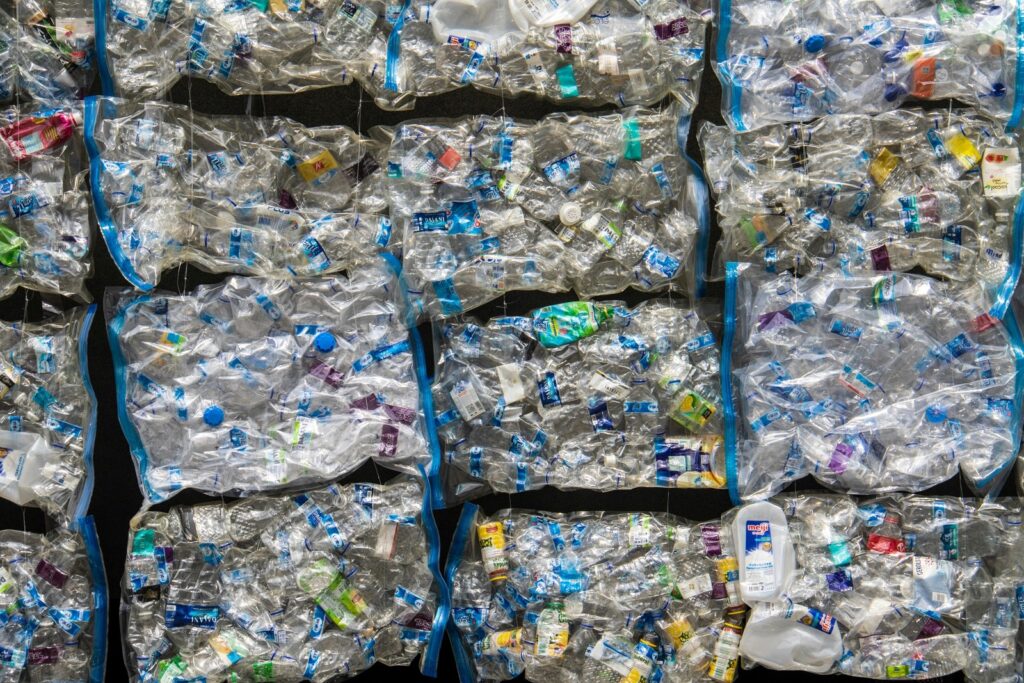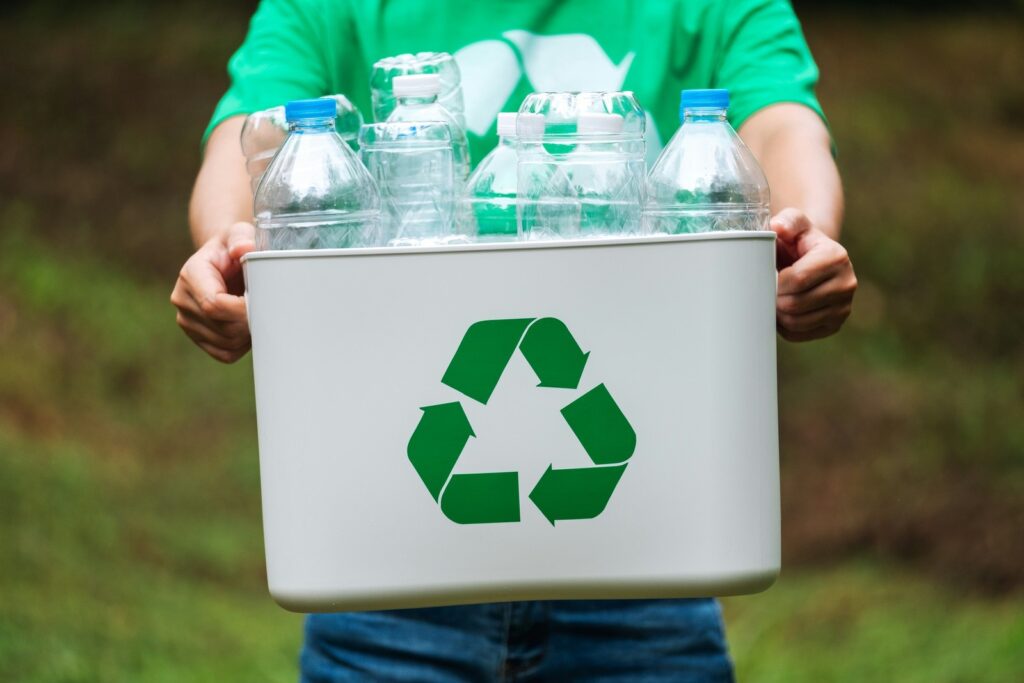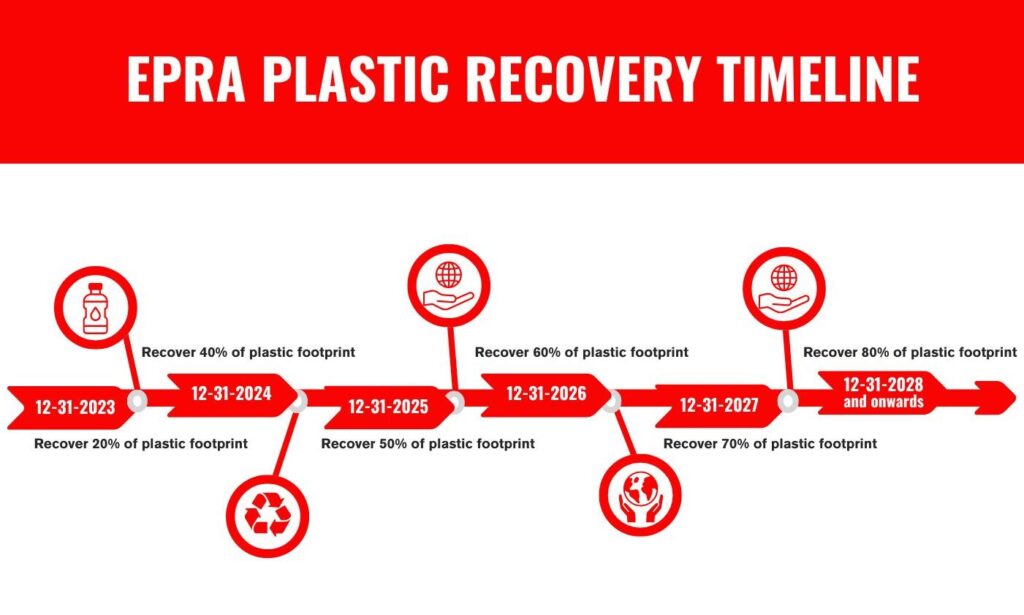April signifies a pivotal time globally as it heralds Earth Month, a period dedicated to advocating for sustainable practices and raising awareness about environmental issues. Across the world, nations unite to reflect on our planet’s health and pledge concerted efforts for its preservation. In the heart of this movement lies the Philippines, where the sentiment of environmental consciousness resonates deeply as it grapples with the intricate balance between economic development and ecological preservation.
In response to challenges, the Philippines unveiled a game-changing stride in environmental responsibility by enacting the Republic Act No. 11898 or the Extended Producer Responsibility Act (EPRA). This legislative measure essentially signals a new era of sustainability by compelling businesses to take ownership of their plastic waste and holding them accountable for the plastic they use throughout the entire lifecycle of their products.
As we honor Earth Month, join us as we delve into the details of EPRA, exploring its potential to shape a sustainable paradigm shift for a more resilient and eco-conscious future.
WHAT IS EPRA?
The Republic Act No. 11898 or the Extended Producer Responsibility Act (EPRA) amended the Republic Act No. 9003, also known as the Ecological Solid Waste Management Act of 2000, to strengthen environmental policies in relation to managing and minimizing plastic packaging waste.
Prior to the enactment of EPRA, manufacturers were only accountable for the environmental repercussions of their products’ production phase. However, under this new legislation, they are now obligated to achieve plastic neutrality and minimize plastic packaging utilized for product protection, transportation, and sale. In other words, obliged enterprises (OEs) are mandated to be environmentally responsible not only during the production of their products, but all throughout the products’ lifecycle – from manufacturing, consumer use, and up until post-consumer or end-of-life stage.1 This expanded responsibility affects both upstream and downstream business operations, emphasizing the significance of sustainable practices across the supply chain.
WHO ARE THE OBLIGED ENTERPRISES?
Obliged Enterprises (OEs) refer to large product producers that generate plastic packaging wastes. An enterprise is considered “large” when its total assets are over One Hundred Million Pesos (PhP 100,000,000.00).2
Product producers that are considered OEs under EPRA are:
- Brand Owner who sells or supplies any commodity under a brand, label or identity using a product it produced, or a material supplied to it by another manufacturer, or supplier.
- Product Manufacturer or Importer that supplies its commodities for the use of the general consumer or distributes the same as a material product of a brand owner. In case the commodities are manufactured, assembled, or processed by a product manufacturer for another Obliged Enterprise which affixes its own brand name, the latter shall be deemed as the manufacturer.3
Generally, Micro, Small, and Medium Enterprises (MSMEs) are not covered, but they are highly encouraged to practice EPRA voluntarily. As an exception, MSMEs may be considered as OEs when the total value of assets of all enterprises carrying the same brand, label, or trademark exceeds that of medium enterprises, which is currently at One Hundred Million Pesos (PhP 100,000,000.00) as prescribed by Republic Act 9501 or the MSME Law.4
WHAT TYPES OF PLASTIC MATERIALS ARE COVERED UNDER THE EPRA?

- Rigid Plastics – this category includes packaging for beverages, food, home goods, and personal care products. This also extends to promotional items such as cutlery, plates, drinking straws, and signage, often featuring layered compositions with other materials and their respective coverings or lids. Examples are bottles for drinks and cosmetics.
- Flexible Plastics – this category covers a broad spectrum, including sachets, labels, laminates, and other single or multi-layered plastics with different materials, commonly used for packaging products like shampoo and noodles.
- Plastic Bags – this category refers to single-use plastic bags used to transport products that are provided or used upon purchase.
- Polystyrene – this includes both rigid (i.e. takeout containers) and foam polystyrene (i.e. cups and foam food packaging).5
WHAT MUST OBLIGED ENTERPRISES DO UNDER THE EPRA?
To achieve plastic neutrality, OEs must develop an Extended Producer Responsibility (EPR Program) which includes the activities and strategies such as reduction of non-environment friendly products and product waste management programs. OEs must register their respective EPR Programs with the National Solid Waste Commission (NSWC) through the Department of Environmental and Natural Resources (DENR).
EPR Programs may come in many forms, such as:
- Adoption of reusable products, or redesign of the products to improve its reusability, recyclability, or retrievability;
- Inclusion of recycled content or recycled materials in a product;
- Adoption of appropriate product refilling systems for retailers;
- Appropriate labeling of products, including the information thereon for the proper disposal of the waste product;
- Buy-back, offsetting, or any method or strategy that will efficiently result in the high retrievability, high recyclability, and resource recovery of waste products;
- Transportation of recovered waste to the appropriate composting, recycling, or other diversion or disposal site in the country;
- Establishment of commercial or industrial scale recycling, composting, thermal treatment; or
- Partnership with LGUs, communities, and the informal waste sectors.6
Aside from developing an EPR Program, businesses and companies must also establish an auditing system to evaluate their compliance effectiveness.7 This may involve hiring an independent third-party auditor, who conducts evaluations based on the standardized criteria set forth by the Department of Environment and Natural Resources (DENR).

WHAT ARE THE METHODS TO ACHIEVE AND EXECUTE AN EPR PROGRAM?
Implementing an EPR program is a strategic step for businesses and companies aiming to enhance their sustainability practices and comply with environmental regulations. The EPRA outlines two primary methods for establishing and executing an effective EPR program:
1. Developing Your Own EPR Program
Creating an internal Extended Producer Responsibility (EPR) program involves setting up, managing, and auditing the initiative in-house. This option requires significant investment in terms of resources and expertise, as it encompasses everything from product redesign for sustainability to establishing recycling schemes and processes. While it grants companies full control over their EPR strategies, and thus aligning closely with their corporate values and operational goals, the complexity and resource demands make this method a challenging path.
2. Partnering with Producer Responsibility Organizations (PROs)
Alternatively, companies can partner with Product Recovery Organizations (PROs) to manage their EPR obligations. PROs specialize in the collection and recycling of waste, offering services that include coordinating with stakeholders, managing waste collection and recycling data, and reporting compliance to regulatory bodies. It simplifies the EPR process for companies, allowing them to focus on their core business while supporting sustainability and scalability in meeting future environmental targets.8
WHAT ARE THE MINIMUM TARGETS FOR PLASTIC RECOVERY AND DIVERSION?
The specified plastic recovery and diversion targets under the EPRA outline a progressive increase in the percentage of plastics that entities must recover from their previous year’s waste:

- By December 31, 2023: Entities must recover 20%, establishing an initial benchmark for recycling efforts.
- By December 31, 2024: The target escalates to 40%, demanding a rapid enhancement of recovery mechanisms.
- By December 31, 2025: The goal further increases to 50%, marking a requirement to recycle half of the generated plastic waste.
- By December 31, 2026, and 2027: The targets rise to 60% and 70%, respectively, pushing for continuous improvement and greater efficiency in waste recovery.
- By December 31, 2028, and beyond: A steady target of at least 80% recovery is set, emphasizing long-term commitment to sustainable waste management and plastic reduction.9
These escalating targets aim to drive entities towards more efficient recycling and waste management practices and innovation in sustainable processes, ultimately contributing to significant reductions in plastic pollution.
WOULD IMPLEMENTING AN EPR PROGRAM INCREASE THE COST OF PRODUCTS?
Complying with the EPRA is not expected to lead to higher product prices. It expressly specifies that the expenses incurred by OEs in meeting their EPR obligations are recognized as necessary expenses. These necessary expenses can be deducted from their gross income, provided they meet the criteria under Section 34(A)(l) of the National Internal Revenue Code of 1997, as amended.10 This provision aims to mitigate the financial impact of EPR compliance on businesses and companies.
WHAT ARE THE PENALTIES FOR NON-COMPLIANCE?
Companies failing to register their EPR programs or meet diversion targets as specified above will be penalized as follows:
- First offense – a fine ranging from ₱5 million to ₱10 million.
- Second offense – a fine from ₱10 million to ₱15 million.
- Third offense – a fine between ₱15 million and ₱20 million, plus suspension of the business permit until compliance is achieved.
Non-compliance with diversion targets results in the above fines or a penalty double the cost of necessary recovery and diversion efforts, whichever is greater.11
TOWARDS AN ECO-CONSCIOUS FUTURE

Compliance with EPRA serves as a pivotal step toward ecological stewardship, a commitment that gains even more significance during Earth Month. By adhering to EPRA’s requirements, businesses play a crucial role in reducing plastic waste and fostering a sustainable future, thereby honoring our collective responsibility to protect and preserve the planet for the generations to come.
Consulting with environmental law experts and related professionals offers invaluable guidance, tailored strategies, and innovative solutions to effectively navigate EPRA’s demands. This proactive approach not only ensures compliance but also bolsters your business’ role in reducing plastic waste and fostering a sustainable future. Their expertise ensures not only compliance, but also positions your business as a leader in sustainability, enhancing its reputation and providing a substantial competitive advantage. Embrace this opportunity to transform regulatory challenges into sustainability successes with the help of seasoned experts.
Prepared by Samantha Famae M. Feril.
FOOTNOTES
- Section 3 (m-1), R.A. 9003, as amended by R.A. 11898.
- Section 3 (p-4), R.A. 9003, as amended by R.A. 11898.
- Section 3 (w-2), R.A. 9003, as amended by R.A. 11898.
- Id.
- Section 44-C, R.A. 9003, as amended by R.A. 11898.
- Section 44-A, R.A. 9003, as amended by R.A. 11898.
- Id.
- Id.
- Section 44-F, R.A. 9003, as amended by R.A. 11898.
- Section 45, R.A. 9003, as amended by R.A. 11898.
- Section 49, R.A. 9003, as amended by R.A. 11898.

